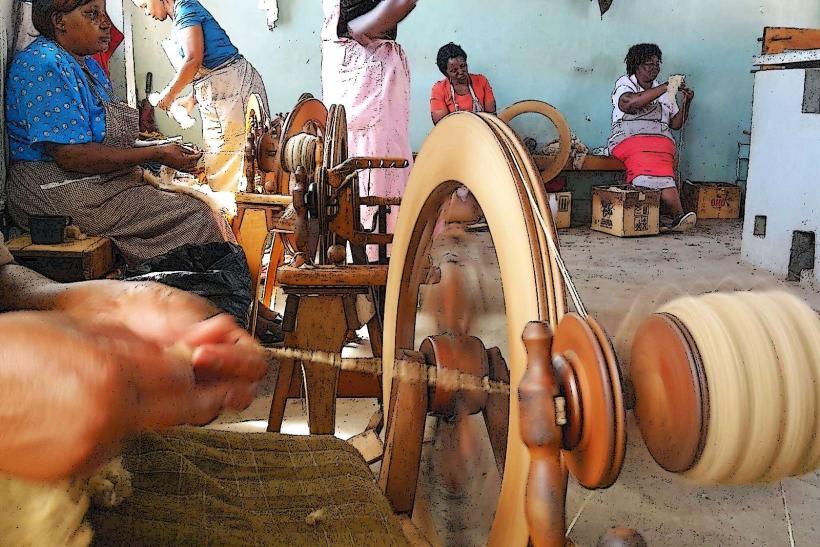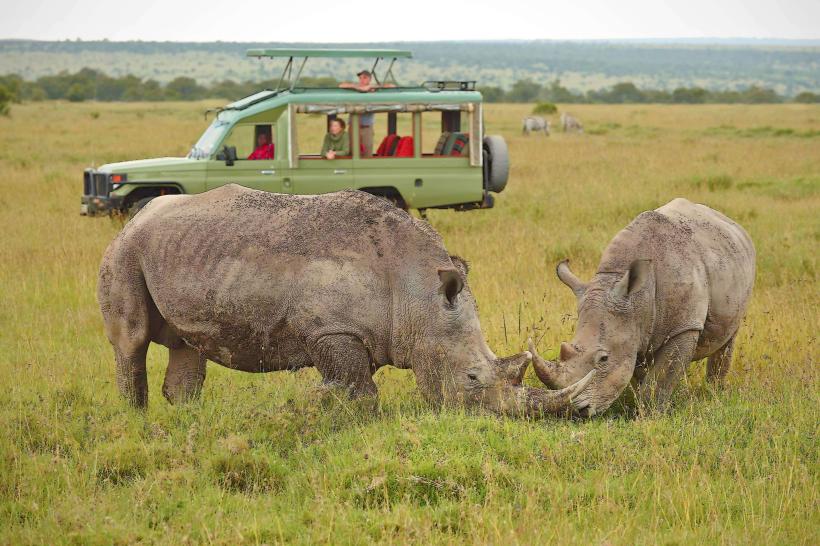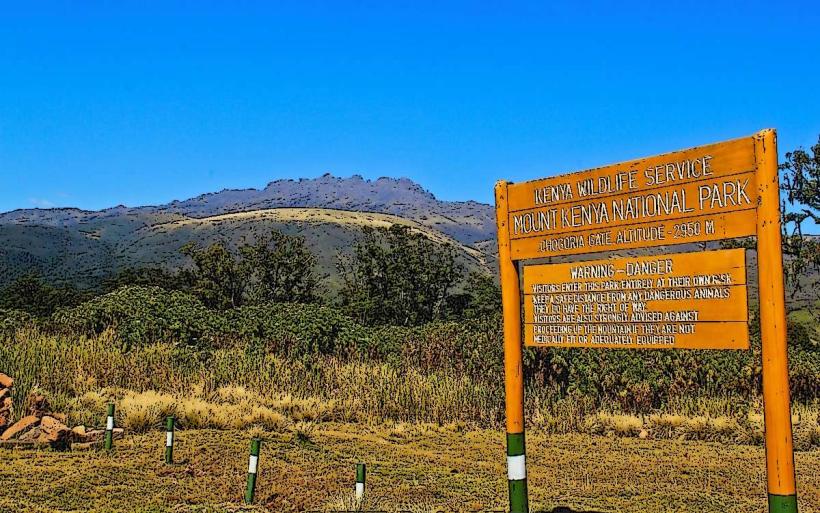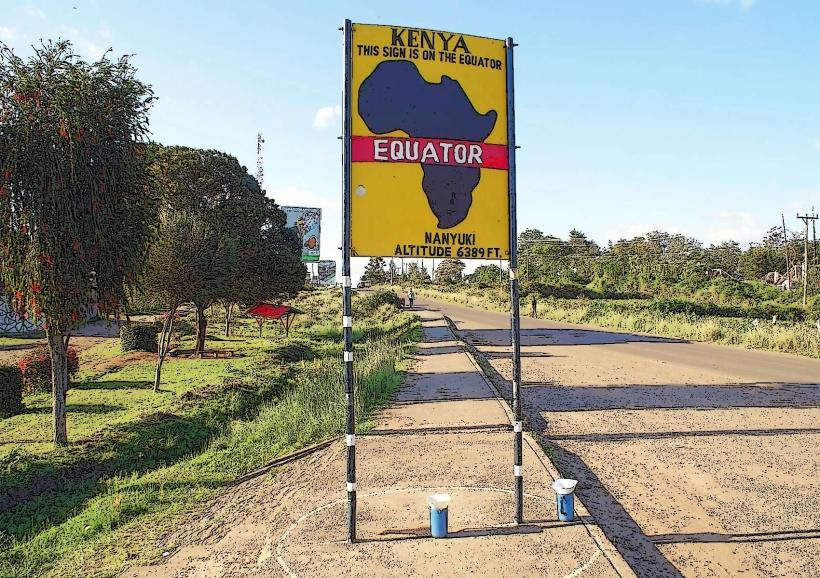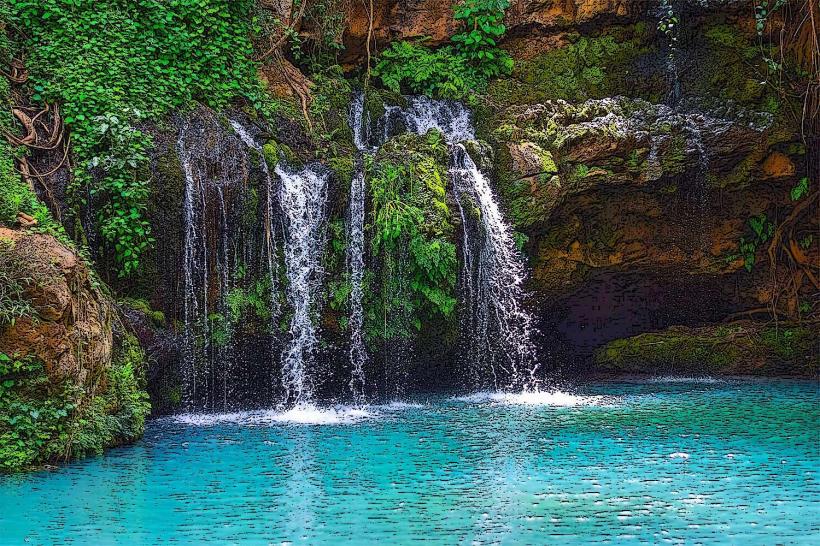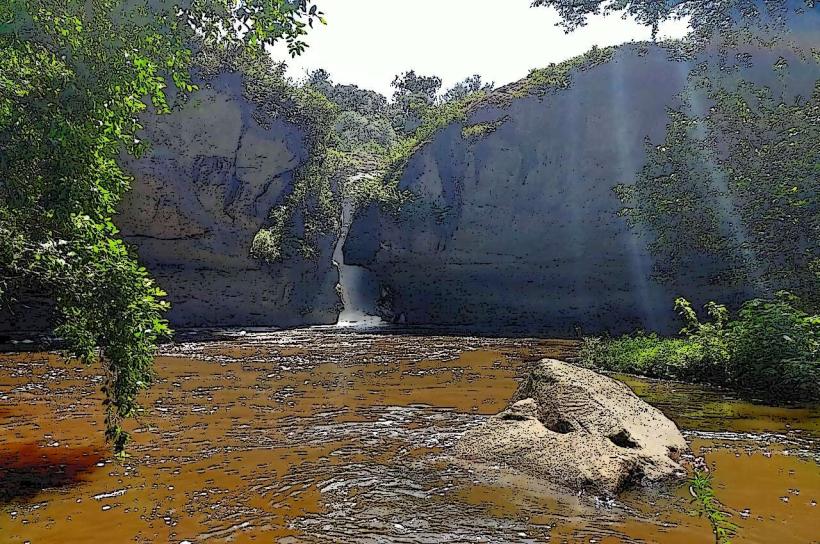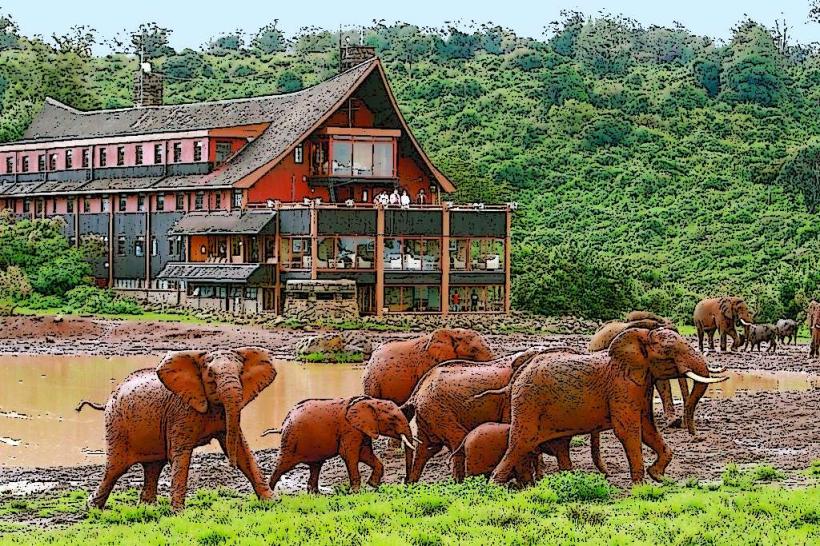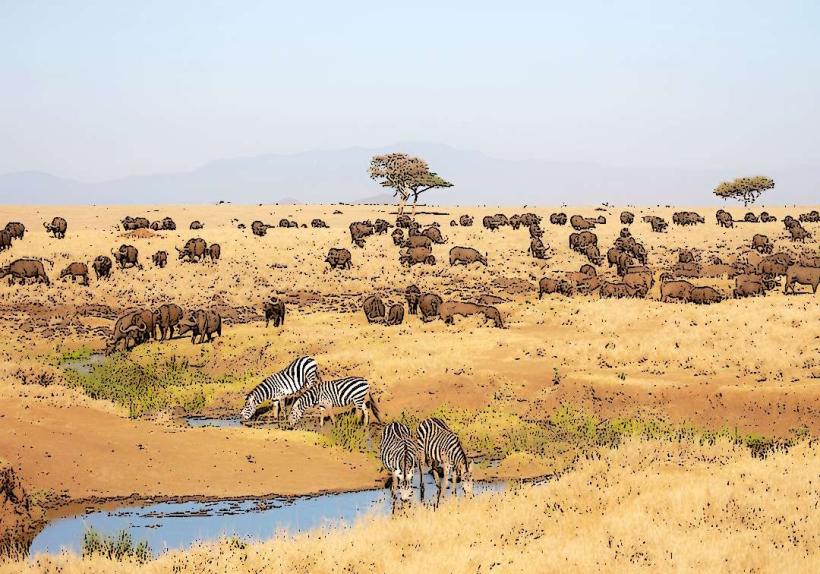Information
Landmark: Sweetwaters Chimpanzee SanctuaryCity: Nanyuki
Country: Kenya
Continent: Africa
Sweetwaters Chimpanzee Sanctuary, Nanyuki, Kenya, Africa
The Sweetwaters Chimpanzee Sanctuary is located within the Ol Pejeta Conservancy in central Kenya, making it the only chimpanzee sanctuary in the country. It was founded in 1993 with the aim of providing a safe haven for orphaned and abused chimpanzees that were rescued from illegal captivity, such as the pet trade, circuses, and other exploitative environments. The sanctuary plays a significant role in protecting chimpanzees and raising awareness about the threats they face, including habitat loss, poaching, and illegal trafficking.
Key Features and Attractions
Chimpanzee Residents
The sanctuary is home to about 35 chimpanzees. These individuals are organized into two main groups, each living in separate enclosures separated by a river. The chimpanzees come from various backgrounds, including individuals that were confiscated from illegal pet trades, circus acts, and other abusive conditions. Most of them had experienced significant trauma, such as witnessing the killing of their families or enduring harsh captivity.
The chimpanzees in the sanctuary are given a chance to heal physically and psychologically, and their well-being is carefully monitored by a dedicated team of caregivers and veterinarians.
Natural Habitat and Enclosures
The sanctuary spans an area of 5,500 acres within the Ol Pejeta Conservancy. The environment is designed to replicate the chimpanzees' natural habitat as much as possible, with plenty of space for the chimpanzees to roam, climb, forage, and socialize.
The enclosures are designed to offer opportunities for chimpanzees to exhibit natural behaviors like nesting in trees, foraging for food, and interacting socially with one another. These behaviors are essential for their rehabilitation and well-being.
Rehabilitation and Quarantine
When chimpanzees first arrive at the sanctuary, they undergo a quarantine period. This is to ensure their health and safety, preventing the spread of diseases to the existing chimpanzee population.
After the quarantine period, they are integrated into the existing chimpanzee groups. The process is gradual, and the sanctuary staff carefully monitor how the new arrivals adjust to their new environment and interact with the other residents.
Chimpanzee Feeding and Enrichment
The sanctuary staff regularly engage the chimpanzees in feeding and enrichment activities. These activities are designed to keep the chimpanzees physically and mentally stimulated. Enrichment may include hiding food around their enclosures to encourage foraging or giving them tools to interact with, much like what they would use in the wild.
Visitors can witness feeding times and watch how the chimpanzees interact with their environment. These activities also allow visitors to observe chimpanzee behaviors up close, which helps to further educate the public about chimpanzees' intelligence, social structures, and emotional capacities.
Visitor Experience
Visitors to the Sweetwaters Chimpanzee Sanctuary can take guided tours to learn about the chimpanzees and their rehabilitation journeys. The tours include an introduction to the history of the sanctuary, the conservation challenges facing chimpanzees, and the ongoing efforts to ensure their well-being.
Visitors can also observe the chimpanzees during their daily routines, including feeding, socializing, and playing. The guides provide insights into the behaviors of the chimpanzees and the sanctuary's role in their rehabilitation.
Educational Programs and Awareness
The Sweetwaters Chimpanzee Sanctuary plays an essential role in educating the public about the plight of chimpanzees. The sanctuary works closely with local and international conservation organizations to raise awareness about issues like the illegal wildlife trade, habitat destruction, and the need for stricter conservation laws.
Through its educational programs, the sanctuary encourages responsible wildlife tourism and supports efforts to combat the exploitation of great apes globally.
Research and Conservation
In addition to rehabilitation, the sanctuary conducts research on chimpanzee behavior, health, and welfare. This research helps improve care practices for chimpanzees in sanctuaries and informs broader conservation efforts.
The sanctuary is an advocate for the protection of chimpanzees and other endangered species. It supports international efforts to halt the illegal trade in wildlife and promotes better enforcement of wildlife protection laws.
Activities for Visitors
Chimpanzee Feeding Times: Visitors can observe chimpanzee feeding times and the chimpanzees’ interactions with their food. These events are often a highlight of the visit, as visitors can see the chimpanzees demonstrating natural foraging behaviors.
Guided Tours: The sanctuary offers informative guided tours where visitors can learn about the sanctuary’s mission, the history of its residents, and the importance of conservation. These tours are led by knowledgeable staff who are passionate about chimpanzee welfare.
Enrichment Sessions: Visitors may also have the opportunity to watch enrichment sessions where chimpanzees are given new items to explore or interact with, which encourages them to use their natural problem-solving skills.
Access and Location
The Sweetwaters Chimpanzee Sanctuary is located within the Ol Pejeta Conservancy, which is about 200 kilometers north of Nairobi. It is easily accessible from Nanyuki, which is a short drive away from the sanctuary.
The conservancy is located on the Nanyuki-Nakuru Road, and visitors can access the sanctuary through the main entrance of Ol Pejeta.
Accommodation
While the Sweetwaters Chimpanzee Sanctuary itself does not provide accommodation, there are several options within the Ol Pejeta Conservancy where visitors can stay:
Sweetwaters Serena Camp: A luxury tented camp offering a comfortable stay close to the sanctuary, with stunning views of the surrounding landscape.
Ol Pejeta Bush Camp: A more rustic option for those looking for a more intimate, wilderness experience with opportunities for guided safaris and bush walks.
Nanyuki Town: Visitors can also find a variety of accommodations in the nearby town of Nanyuki, ranging from budget to mid-range options.
Best Time to Visit
The Sweetwaters Chimpanzee Sanctuary is open throughout the year, but the best time to visit is during the dry season (from June to September and December to March), when the weather is more favorable for outdoor activities. However, the sanctuary is open year-round, and each season offers different experiences, especially for those interested in wildlife and nature.
Conclusion
The Sweetwaters Chimpanzee Sanctuary provides a unique and educational experience for anyone interested in the conservation of chimpanzees and other great apes. It plays a vital role in offering a safe and rehabilitative environment for orphaned and abused chimpanzees while contributing to broader conservation efforts. Through guided tours, feeding times, and educational programs, visitors can learn more about the sanctuary’s work and witness firsthand the fascinating behaviors of chimpanzees in a safe and supportive environment.

